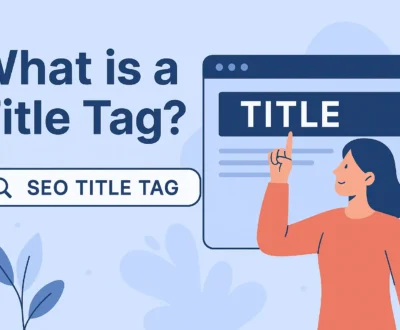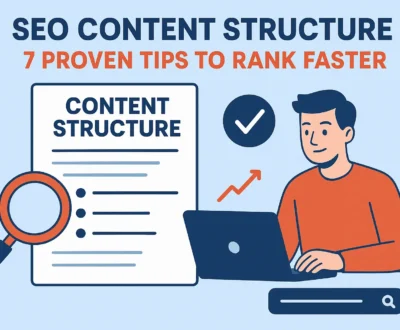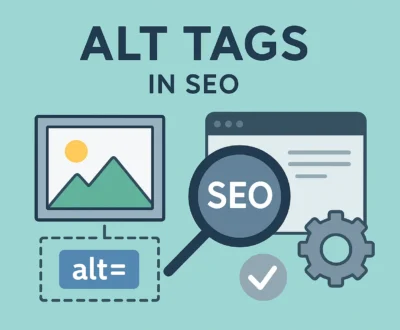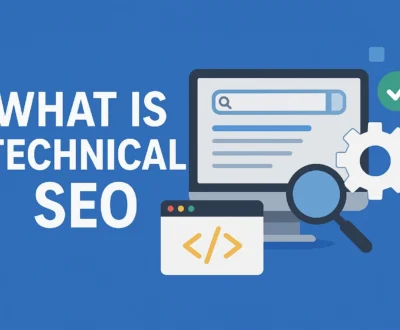Meta Tags for SEO: A Complete Beginner’s Guide
- November 16, 2025
- Digital Marketing, On-Page SEO, Search Engine Optimization(SEO)
If you’re trying to improve your website’s on-page SEO, one of the first things you’ll hear about is meta tags. But what are meta tags exactly, and why do they matter so much? In simple words, meta tags for SEO are small pieces of HTML code that tell search engines and browsers what your page is about.
They don’t usually appear in the visible content of your page, but they work quietly in the background to support rankings, clicks, and user experience. In this guide, we’ll explain:
- What are meta tags?
- What is a meta title?
- What is a meta description?
What are Meta Tags?
If you’re learning SEO or starting a website, one of the first terms you’ll come across is “meta tags.” So, what are meta tags exactly?
Meta tags are small pieces of HTML code that live in the <head> section of a webpage. They don’t appear directly on the page that visitors see, but they quietly give information about the page to search engines and browsers. Think of meta tags as labels on a file: they help systems understand what’s inside without reading everything in detail. They are an important part of the on-page SEO checklist.
When you use them properly, meta tags can improve how your pages show up in search results, how they look when shared, and how easily search engines understand your content.
Meta Tags for SEO: Why Do They Matter?
To truly understand what meta tags are, it helps to know what they do:
- They describe your page’s topic and purpose
- They help search engines index your content correctly
- They influence what users see in search results
- They can impact how many people click on your result
Even though not all meta tags directly affect rankings, they all contribute to clarity and usability. And clarity is a big deal in SEO.
So let’s learn about the different types of meta tags.
Type of Meta Tags for SEO
The two most common types of meta tags for SEO are the meta title and meta description. Let’s learn about each in detail.
What is a Meta Title?
A meta title (also known as the title tag) is the main headline shown in search results. It’s also usually visible as the text on your browser tab when you open a page.
Example:
<title>Best DSLR Cameras Under 800$</title>
Here’s why the meta title is so powerful:
- It tells search engines what the page is about.
- It gives users a quick idea of your content before they click.
- It can attract or repel clicks based on how clear and appealing it is.
Good practice for writing a meta title:
- Include your main keyword, for example, what are meta tags
- Keep it clear and readable
- Stay within roughly 50–60 characters so it doesn’t get cut off
- Avoid stuffing too many keywords
A strong answer to what a meta title is: it’s the short, focused headline that represents your page in search results and helps both users and search engines understand the main topic.

The line in blue is the meta title, whereas the lines in black are the meta description.
What is a Meta Description?
Another key element, especially for click-through rate, is the meta description. So, what is a meta description?
A meta description is a brief summary of the page that usually appears below the title in search results. It’s like a small pitch that explains why someone should click your link instead of another.
Example:
<meta name="description" content=" Are you looking to buy a DSLR? Our comparative guide walks you through the Best DSLR Cameras Under 800$.">
A meta description should:
- Summarize what the page is about
- Use natural language that speaks to the user
- Include your main topic
- Encourage the user to take action
- Should be under 160 characters
Even though search engines don’t always show the exact text you write, a well-structured meta description gives them a strong hint and gives your page a better chance of appearing with a compelling snippet.
Other Common Types of Meta Tags for SEO
To fully understand what meta tags are, it helps to know the main kinds you’ll actually use:
Meta Charset Tag
- <meta charset="UTF-8">
- Tells the browser which character encoding to use
- Prevents weird symbols or broken characters
Viewport Meta Tag (important for mobile)
- <meta name="viewport" content="width=device-width, initial-scale=1.0">
- Helps pages display properly on mobile devices
- Supports a better user experience
Robots Meta Tag
- <meta name="robots" content="index, follow">
- Tells search engines whether they should index the page and follow links
In the early days of SEO, a meta keywords tag was also standard, but search engines no longer use it, so it’s usually safe to ignore it.
Best Practices for Writing Meta Tags for SEO
Now that you have a clear idea of what meta tags are, here are some practical tips for using them:
- Always write a unique meta title and description for each important page.
- Include your primary keyword, such as what are meta tags, in both the title and description naturally.
- Keep titles around 50–60 characters and descriptions around 140–160 characters.
- Write for humans first, search engines second. Clarity and value matter more than keyword stuffing.
- Regularly review and update your meta tags based on performance in search results.
Understanding what meta tags are is a core part of building SEO-friendly web pages. Even though meta tags are hidden in the code, they have a very visible impact on how your content appears in search results and how users interact with it.
A well-crafted meta title clearly states the topic. A thoughtful meta description gives users a reason to click. Together, along with other helpful meta tags, they make your content easier to understand, easier to find, and more attractive in search results.
Use meta tags intentionally, keep Meta Tags for SEO clear and honest, and you’ll give every page on your website a stronger foundation for long-term organic growth.
Priyanka is a long form content writer with experience of over 5 years. She has worked in multiple industries including real estate, ecommerce services and products, hospitality, business formation, and more. In her free time, she loves to read books, click photographs, and listen to podcasts.
About us and this blog
We are a digital marketing company with a focus on helping our customers achieve great results across several key areas.
Request a free quote
We offer professional SEO services that help websites increase their organic search score drastically in order to compete for the highest rankings even when it comes to highly competitive keywords.
Subscribe to our newsletter!
More from our blog
See all postsRecent Posts
- How to Submit Website to Bing: A Complete Beginner’s Guide January 4, 2026
- What is a Title Tag? A Complete Guide for Beginners December 7, 2025
- SEO Content Structure: Tips to Rank Faster November 30, 2025










